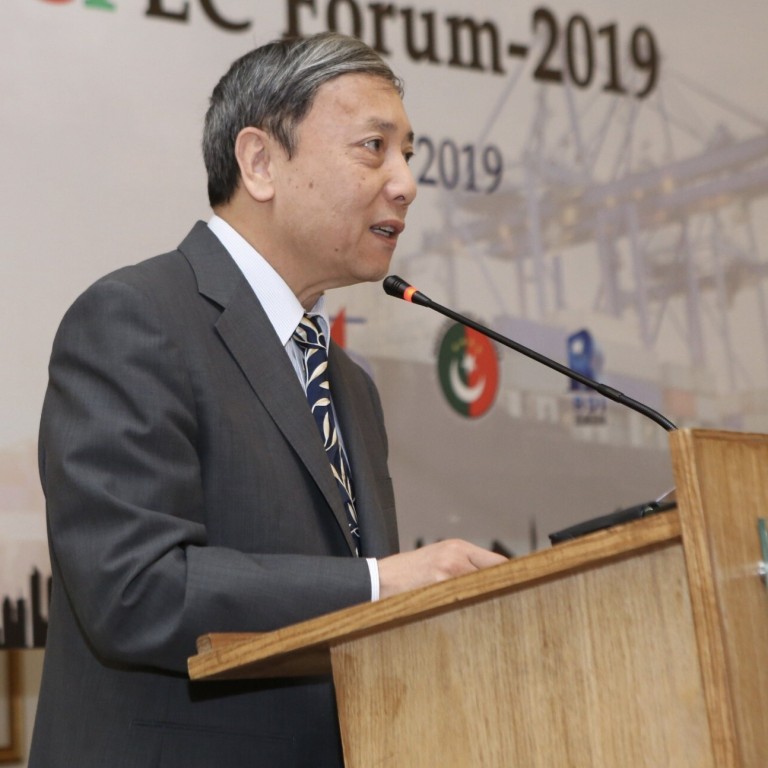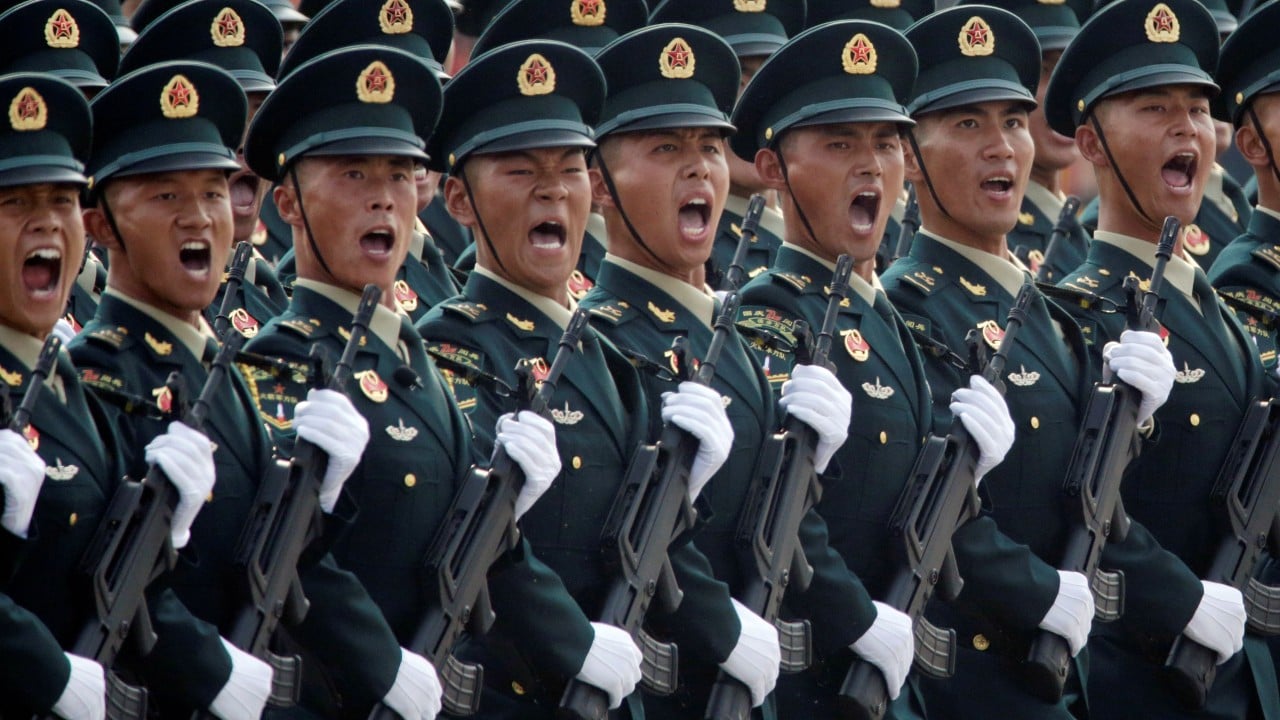
Exclusive | China eyes ‘diversified’ relations as US becomes increasingly hostile, Beijing economic adviser says
- Cai Fang is a vice-president of the Chinese Academy of Social Sciences and an academic adviser to the Chinese Economist 50 Forum
- The US-China trade war, the US entity list and the fallout from the coronavirus outbreak have accelerated the decoupling of the world’s two largest economies
China will seek “more diversified” external relations during a period when “globalisation is at a low ebb” to be able to thrive in a world where the United States is becoming increasingly hostile, according to a senior adviser to the Chinese leadership.
Maintaining China’s place in the global supply chain will be a key theme for Beijing after the coronavirus, especially since Washington is becoming more aggressive in containing China’s rise, Cai Fang, a vice-president of the Chinese Academy of Social Sciences, a major state-funded think tank, told the South China Morning Post.
“There are many things we can do … we need to talk with the Americans while we struggle against them,” Cai said on Wednesday. “And we should not put all our eggs in one basket.
“We’ll seek more diversified international cooperation and industrial supply chains. The faster the US seeks decoupling, the quicker China will embrace the trend.”
The US will contain China’s rise … it’s something that China can’t change. The strong motive to contain China will continue into future administrations
Cai is an expert in Chinese labour economics and one of the top architects of China’s economic policies. He is an academic adviser to the Chinese Economist 50 Forum, a pro-reform think tank co-founded by Vice-Premier Liu He, the top economic aide to President Xi Jinping.
Xi said over the weekend that the domestic market “will play a dominant role” for China going forward, signalling a shift from an export-led growth model to a new one that relies more on the domestic market.
“Xi said the world is witnessing changes unseen in the past 100 years, and the core of these changes is that the centre of gravity is moving from the West to East,” Cai added. “It is not just about China’s rise, but also other changes – the share of developing countries in the global economy and their voices in global governance are rising.
“The US will [attempt to] contain China’s rise … it’s something that China can’t change. The strong motive to contain China will continue into future administrations [beyond US President Donald Trump].”

04:12
Are Xi Jinping’s China and Donald Trump’s US destined for armed conflict?
Cai’s view is representative of a growing consensus in Beijing policymaking circles that, whether China likes it or not, Washington is becoming an adversary and so China has to cut its reliance on the US.
China has been labelled by the Trump administration as a “strategic competitor” since early 2018. The subsequent trade war, the creation of an entity list that bars US-made hardware and software sales to Chinese technology heavyweights without special US government permission and incentives to lure American manufacturers to move production away from China, have already pushed the US down to third among China’s largest export destinations.
In the new international context, China’s policies will focus more on pushing its own companies and products to compete in global markets, Cai said.
“Previously opening-up was interpreted as being solely related to the domestic market. Not any more. Instead, our enterprises, innovations and products need to go out and prove themselves in international markets – that’s a new opening-up,” he said.
First we must do our own things well, because our [growth] potential has not yet been fully realised
International supply chains are so complicated that China’s dominance will not be changed overnight, Cai said. China still enjoys advantages in terms of both the size and skill of its labour force, while it has the room and potential to improve its technological innovation. China’s home market of 1.4 billion people can also sustain its development path, he added.
“First we must do our own things well, because our [growth] potential has not yet been fully realised,” the economist added.
Although a large part of Beijing’s 3.6 trillion yuan (US$503 billion) economic stimulus plan announced last week will be used to fund new infrastructure spending, Cai said the new construction drive was small in comparison to the economic rescue package adopted in 2008 in response to the global financial crisis.
“It would be better called a relief programme for small and medium-sized enterprises and households,” he said.
The coronavirus outbreak has also hit China’s jobs market, with the official surveyed urban unemployment rate standing at 6.0 per cent in April, implying that nearly 30 million Chinese workers are now unemployed.
Cai admitted that many migrant workers were not included in the official unemployment figure, as they have been forced to stay at home because of the coronavirus restrictions.
“A fundamental solution is to allow more rural migrant workers to settle in cities and be included into the urban social security system,” he added.

